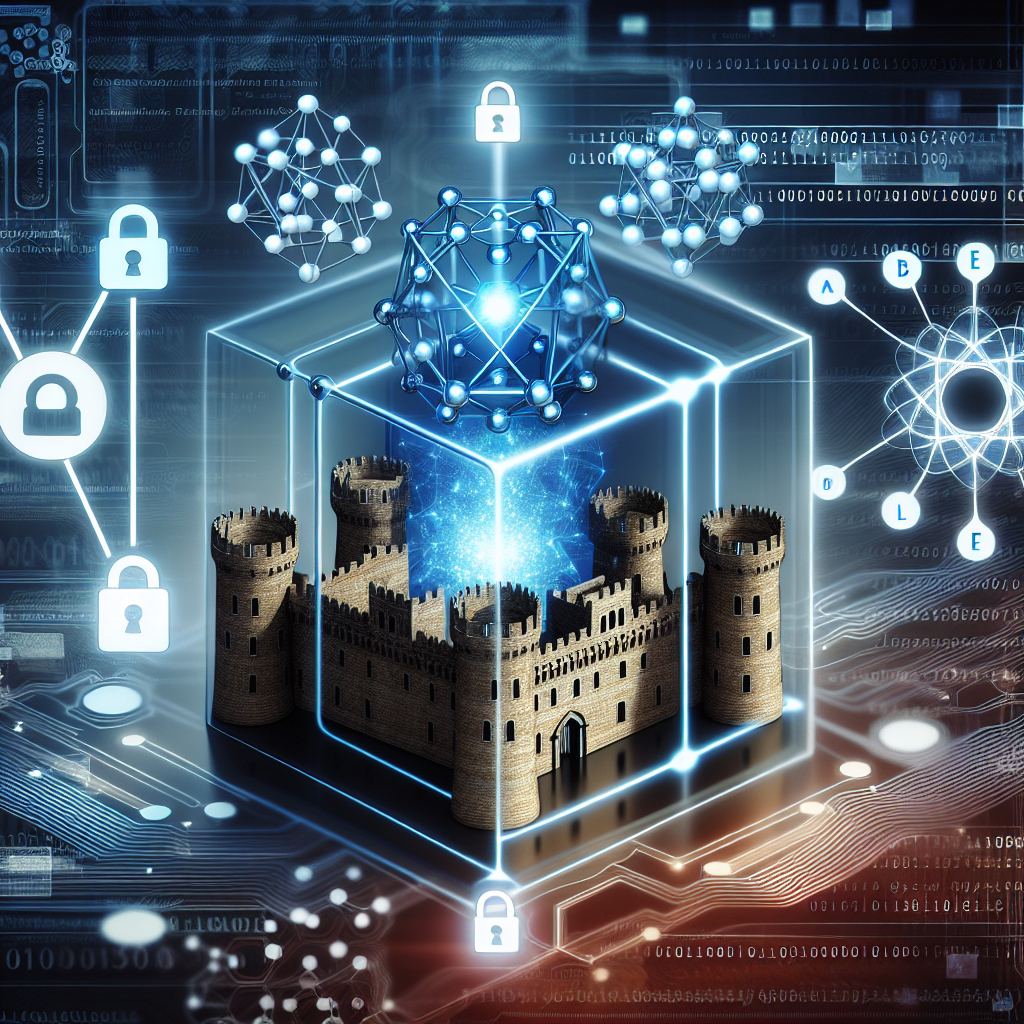In an era where digital transformation underscores every facet of our society, securing data integrity and confidentiality has never been more critical. With cyber threats evolving at an alarming rate, traditional encryption methods are facing increasingly sophisticated attacks, raising serious concerns about their robustness and long-term viability. It is within this high-stakes landscape that quantum computing emerges not merely as a technological advancement but as a pivotal revolution in enhancing data security protocols.
The very nature of quantum computing harnesses the principles of quantum mechanics to perform operations at speeds unfathomable to classical computers, thereby preparing the ground for exponential advancements in various fields, including cybersecurity. This technology’s ability to compute vast amounts of data and its intrinsic attributes, such as superposition and entanglement, provide an unprecedented edge in securing data.
As we delve into the intricacies of how quantum computing is set to redefine our security infrastructure, this blog will explore the integration of quantum technologies into existing data security protocols. We will look at quantum cryptography, specifically quantum key distribution (QKD), which promises unbreakable encryption that can withstand the cunning of future cyber-attacks. Furthermore, we will discuss the transformative potential of quantum computing in developing next-generation cybersecurity solutions, including its impact on blockchain technology and post-quantum cryptography.
Join us as we unravel the complexities of quantum computing and its promising role in fortifying our digital defenses, ensuring a safer cyber environment for individuals and enterprises alike.
Quantum Computing: The Vanguard of Modern Data Security
Imagine a world where your personal and organizational data is virtually unbreachable. Sounds like a plot out of a sci-fi novel, doesn't it? Yet, this is rapidly becoming reality thanks to the awe-inspiring powers of quantum computing. But how exactly does this technology integrate into data security frameworks to enhance encryption methodologies? Let’s dive in.
A Brief Look at Quantum Computing
Unlike classical computing, which relies on bits as the smallest unit of data (0 or 1), quantum computing uses quantum bits, or qubits, which can represent and store information in both 0s and 1s simultaneously thanks to a principle called superposition. But the real game-changer is quantum entanglement, a phenomenon that allows qubits that are entangled to instantly affect each other, no matter the distance separating them.
Enhancing Encryption
Current encryption methods such as RSA and ECC are based on the mathematical difficulty of factoring large prime numbers or the logistics of elliptic curve cryptography, respectively. Quantum computing, however, can leverage algorithms like Shor's algorithm, which can factor these large numbers exponentially faster than classical computers. This capability could potentially render current encryption methods obsolete. Fear not, for this is not the end, but rather the beginning of an era of quantum-safe cryptography, which uses quantum keys for encryption that are theoretically impossible to hack without detection.

Quantum Key Distribution: Infallible Security?
The inherent abilities of quantum computing give rise to a method known as Quantum Key Distribution (QKD). QKD involves transmitting information in quantum states, typically across fiber optic cables. Any attempt to intercept or measure these quantum states causes them to collapse (thanks to the quantum principle known as Heisenberg's Uncertainty Principle) and alters the state of the qubit, which can be detected by the legitimate parties in communication. This offers an unprecedented level of security - if someone tries to eavesdrop on the quantum communication, the very act of measuring it changes the information, thereby alerting the recipient.
QKD has already been implemented in various sectors that require high levels of security, such as government communications and banking, showcasing its practical deployment beyond theoretical applications.
Table: Recent Security Breaches vs. Quantum Safe Implementations
| Year | Security Breach | Quantum Safe Implementation |
|---|---|---|
| 2019 | 50 Million User Data Leaked | Initiated Quantum Key Distribution |
| 2020 | Massive Ransomware Attack | Implementing End-to-End Quantum Encryption |
| 2021 | Financial Data Theft | Laboratory Trials of QKD in Banking Sector |
Scalability and Cost-Effectiveness
On the surface, integrating quantum computing into current technological infrastructures might seem like a costly and Herculean task. There is a common misconception that quantum computing requires extremely cold temperatures, immense energy, and a whole new architectural framework. While those factors were initially challenging, recent advancements have led to more scalable quantum solutions. Companies are now developing quantum processors that can operate at higher temperatures and integrate more seamlessly with existing systems.
Furthermore, the cost analysis, when juxtaposed with the potential for significantly reducing security breaches and the associated financial losses, paints a different picture. Considering the average cost of a data breach is rapidly increasing, investing in quantum computing technologies doesn’t just add a layer of security but also emerges as a cost-effective long-term strategy.

The integration of quantum computing into data security represents a new paradigm. Not only does it challenge our existing frameworks, but it also invites us to rethink what is possible in terms of digital protection.
In conclusion, while quantum computing still has hurdles to overcome, its potential in the realm of data security is unquestionable. Offering solutions that are not just improvements but complete evolutions of existing security measures, this technology is setting the stage for a revolution in how we protect the most sensitive of data.
In wrapping up, the integration of quantum computing into data security doesn't just promise a boost; it's ready to revolutionize the whole field with supercharged encryption protocols. As you've seen throughout this blog, we're not just skimming the surface. The transformative potential of quantum technology is profound, set to redefine cybersecurity landscapes and fortify data vaults against the most cunning of threats. With quantum computing at the helm, our data's future seems not just safer but virtually unbreachable.
Looking ahead, the possibilities of quantum computing in enhancing data security are vast, yet tangible. We're steering towards a future where data breaches could become tales of the past! And this isn't just pie-in-the-sky thinking. With ongoing advancements, the materialization of these quantum-secured networks is just around the corner. Stay tuned. We'll be covering every leap and bound in this exciting journey, so keep an eye on this space!
Now, what can you do? Start by keeping yourself informed. Follow the developments in quantum computing and understand its impact on cybersecurity. And don’t hesitate to invest in quantum-safe encryption solutions as they become available. This is not just about staying one step ahead—it's about not being left behind.
Keep this blog bookmarked, as we'll continue to unravel the complexities and showcase the latest breakthroughs in quantum computing and data security. Together, let's dive headfirst into this quantum leap!


